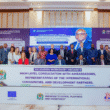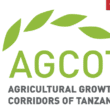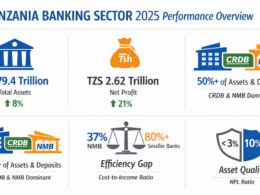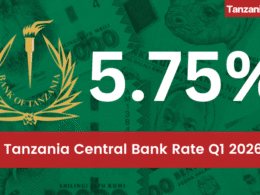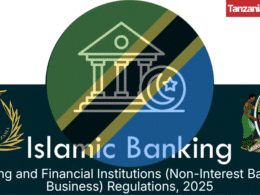During the recent launch of the Small Entrepreneurs Loan Facility (SELF II) last week in Dar es Salaam, the government of Tanzania expressed its dedication to the support of the Tanzania microfinance sector and the crucial role that it plays in alleviating poverty in the country and in contributing to the growth of the national Tanzania economy.
SELF was originally founded nearly ten years ago with the intention of helping to provide loans to microfinance institutions (MFIs) such as SACCOS, NGOs and community banks that would then turn around and lend the money to rural and urban underserved entrepreneurs.
Already the government of Tanzania, in partnership with the African Development Bank (AdfB), have disbursed Tsh44 billion through the SELF II project, as compared to the Tsh10 billion that was disbursed during the initial project.
“The direct borrowers of SELF project are expected to be 820,000 active poor with at least 50 per cent of the total number being women, compared to at least 70,000 beneficiaries of the SELF I,” explained the Permanent Secretary in the Tanzania Ministry of Finance and Economic Affairs, Ramadhan Khijjah,
“The poor have managed to acquire assets, secure economic security, employment opportunities and [the] majority of them, especially women, have been empowered economically,” said Mr. Khijjah.
According to the Permanent Secretary, the positive experience of participants comes as a result of the various activities that have been accomplished with the help of microfinance practitioners such as the SELF project.
Mr. Khijjah went on to indicate that, in addition to prompting a business culture and entrepreneurial spirit among the part of the population that is often overlooked, especially in the rural areas of the country, the SELF II project is also expected to contribute to the overall socio-economic development of the country and to increase income level, which will be manifested through improved living standards.
In order to achieve this goal, the project has been designed to complement the realization of inclusive financial services delivery by encouraging rural based financial institutions.
Practically, and in an effort to meet the overall goal of inclusive financial services delivery, the SELF II project is able to provide capacity building to 1,600 micro credit institutions.
Based on the size of the country and in an effort to speed up the loan application process, ensure close follow up and enhance loan repayment while containing operations cost, the project will be divided into financial hubs across several regions in Tanzania.
According to Mr. Khijjah, the government plans to eventually convert SELF into an autonomous corporate entity that has been specifically customized to fit into the landscape of the Tanzania financial sector and will serve as a long-term alternative, but sustainable entity.
In additional, the Tanzania government is also planning to establish this microfinance unit as a means to oversee, coordinate and create an environment that is beneficial to the growth of microfinance institutions and their ability to effectively contribute to the overall poverty reduction.


